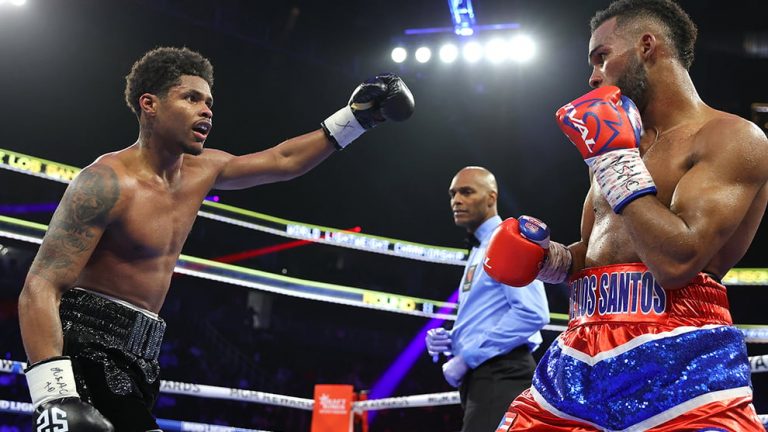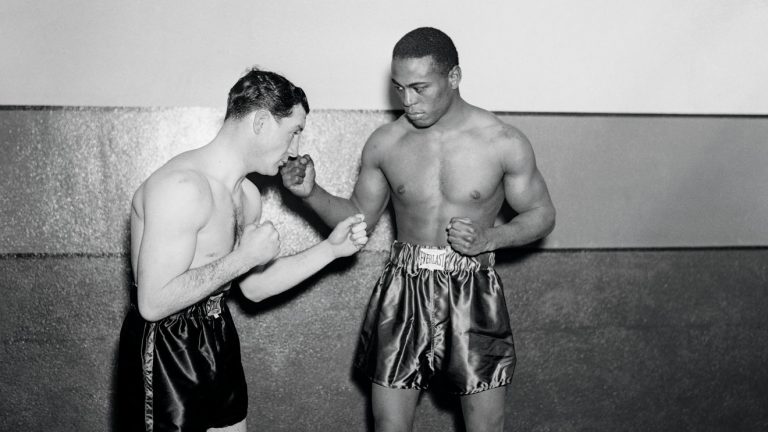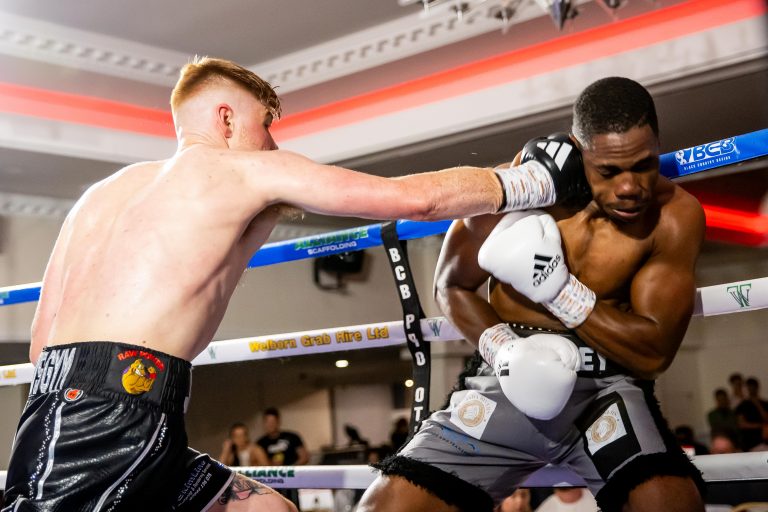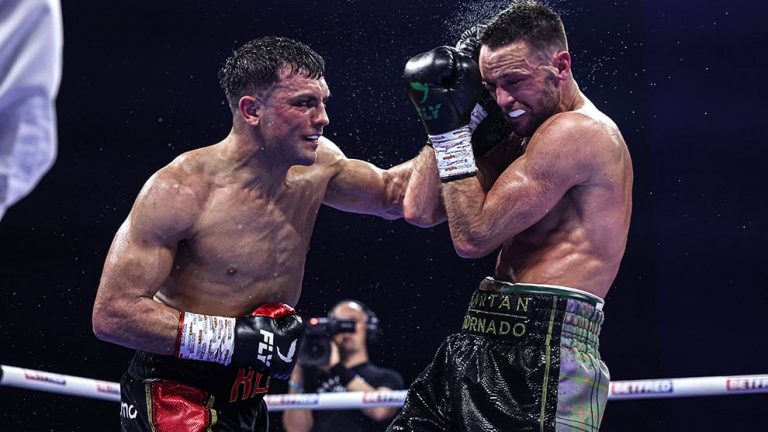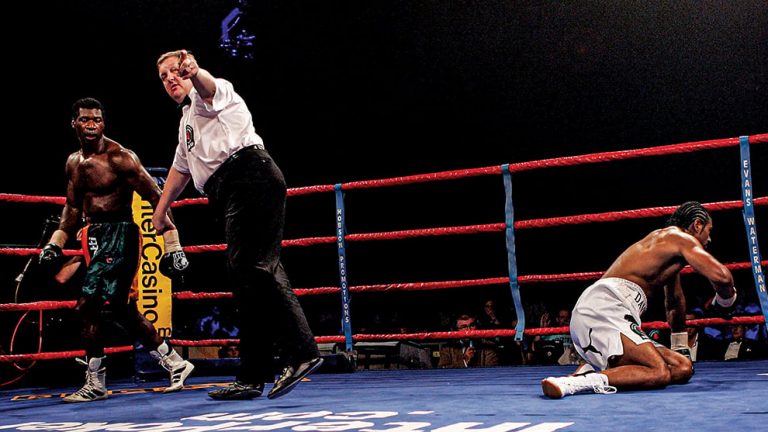Editor’s Letter: Wardley vs. Clarke was a fight for the ages
THE bloodstained canvas was paraded on social media like a child showing off their grazed knee to classmates after surviving a fall in the playground. Yet this was boxing, the most brutal of sports, at its bravest and most everlasting.
The blood mostly belonged to Fabio Wardley, a man from white-collar roots who fought the majority of 12 rounds with a gaping wound on the bridge of his nose. Some of the blood came from Frazer Clarke, an 8-0 prospect widely expected beforehand to be knocked out. Together, the heavyweights concocted a slugfest of the ages, one destined for immortality.
How they did it most of us cannot possibly comprehend, the sheer effort on display was heroic in the extreme. Wardley and Clarke gave everything they could, to the extent neither could stand straight as they awaited the judges’ verdicts. Boxers too often say they are willing to die in the ring; the severity of such talk is downplayed by its throwaway delivery. But there, inside The O2 on Easter Sunday, Wardley and Clarke edged ever closer to oblivion as the leaking blood and trauma to their bodies increased with each passing second. Let us never forget, nor take for granted, the effort required to make fights like that.
It is a misconception to suggest these bouts, ones both so hellish and so thrilling, are born of a desire from the combatants to entertain us, however. The effort put forth is selfish and instinctive, and the entertainment a mere byproduct of such astonishing desires to win. It is, after all, what makes boxing – when matched correctly – the most thrilling of sports.
This contest was a triumph for the British title, too. For too long the championship was overlooked in favour of incomprehensible “continental” titles that guaranteed higher rankings with certain sanctioning bodies. Yet we have seen an unmistakable upturn in the fortunes of the Lonsdale Belt in the past year or so. And why not. For the fighters, the prize is simple but there are few better statuses in the sport than to be the champion of your country. Better still, unlike at world level, they’re the only champion of their country. For the promoters and broadcasters alike, surely that prize should be the easiest of sells – even more so after what we experienced last weekend.
Robert Smith, the general secretary of the British Boxing Board of Control, has witnessed a lot of British title fights. “Very high,” he said when asked by BN where Wardley-Clarke stood in the list of those he’s seen from ringside. “Everyone has always said that Area and British title fights are the best, and so it proved again.”
Not so long ago, the Board would send out their circulars every month listing their mandated fights for the domestic championships knowing full well that barely any of them would come to fruition, largely because the boxers were signed to rival promoters or managers saw fit to guide their charges down different, easier paths.
“Perhaps the market became saturated with all the minor sanctioning body titles and the widespread appeal in those fights and titles was limited,” Smith said after admitting there has since been a pronounced upswing in the desire from all to make the fights that really matter.
“Even at Area, English and Celtic level there is more and more interest in making the right fights,” Smith went on. “Now when we put a fight out to bids, more of them are happening. People are realising the importance of these fights and the quality they nearly always produce… Before, there was a blockade. Now, it is no longer there.”
There is an alternative view, of course. One was certainly left wondering after Sunday’s battle what will become of Wardley and Clarke. Talk about a rematch quickly followed, given the thrills, spills and it being ruled a draw. Whether that occurs, or is indeed the sensible next step, is a matter of opinion.
We are right to champion the contest. Right, too, to bemoan the act of avoiding such taxing affairs on the way up. Yet there is also a limit to what these human beings can take.
Wardley admitted afterwards he doesn’t need too many more fights like that and those 36 minutes may well have stolen years from his life.
Clarke, in only his ninth professional contest, fought with the intensity of a man far more advanced in his career.
Therefore the safety-conscious might argue that less gruelling contests might now be the sensible route to take, at least in the shorter term.
The blood has since likely been washed from the canvas but the toll of such a battle, the memories and the scars, won’t be so easy to shift. For what they’ve already sacrificed, we salute the courage of two fine young men.
BACK TO SQUARE ONE
LAST week it emerged, via a report on Mail Online, that UK Anti-Doping (UKAD) and the British Boxing Board of Control (BBBoC) had been successful in their appeal against the National Anti-Doping Panel’s (NADP) verdict to lift Conor Benn’s provisional suspension.
Last July, the NAPD ruled that Benn’s suspension – a consequence of two failed tests for banned substance clomifene in 2022 – should be lifted. It is understood that the reason for this was down to Voluntary Anti-Doping Association (VADA) conducting the tests and not UKAD, the regulatory body for drug testing in Britain. In August, both UKAD and the BBBoC signalled their intention to appeal against the NAPD ruling.
Boxing News has long understood that if that appeal was successful, Benn would be returned to a state of provisional suspension. From there, he would need to satisfactorily explain how clomifene ended up in his system ahead of his projected bout with Chris Eubank Jnr in October 2022, before he could be licenced to fight in Britain.
For all involved, this has been a long and arduous process and one, following this appeal, that is set to continue. Should UKAD choose to place Benn, who has fought twice in the USA in the interim, back under suspension and then reject his reasoning for an illegal substance being in his body, the Londoner can appeal before taking his case to the Court of Arbitration for Sport. In the meantime, if Benn is suspended, any licence-holders who facilitate Benn fighting again could face action.
Benn was heavily linked to a showdown with 45-year-old Manny Pacquiao in recent weeks, but confirmation never came. BN understands that Benn’s immediate fate will become clearer in the coming days.

